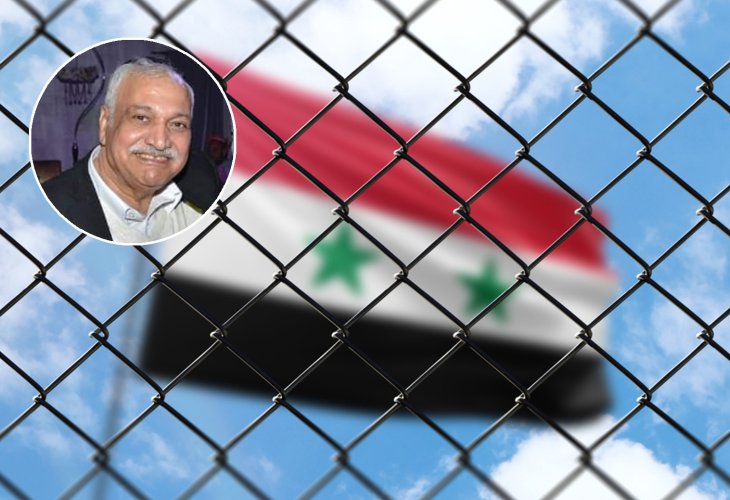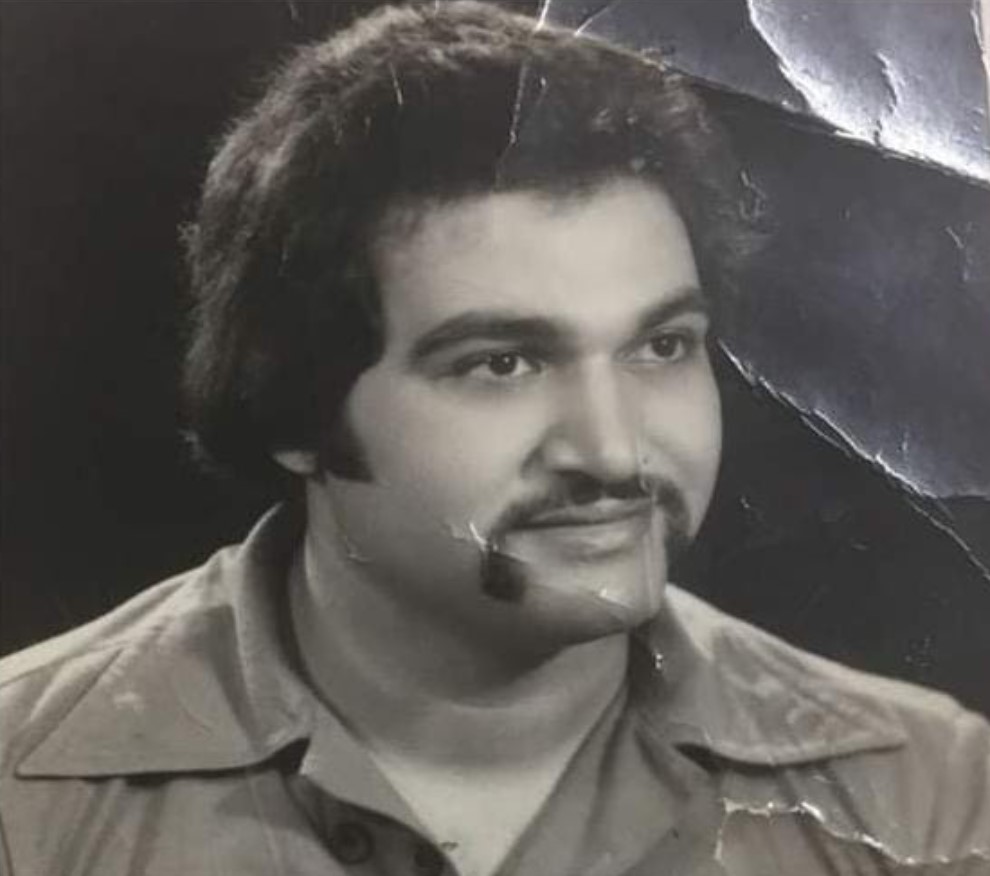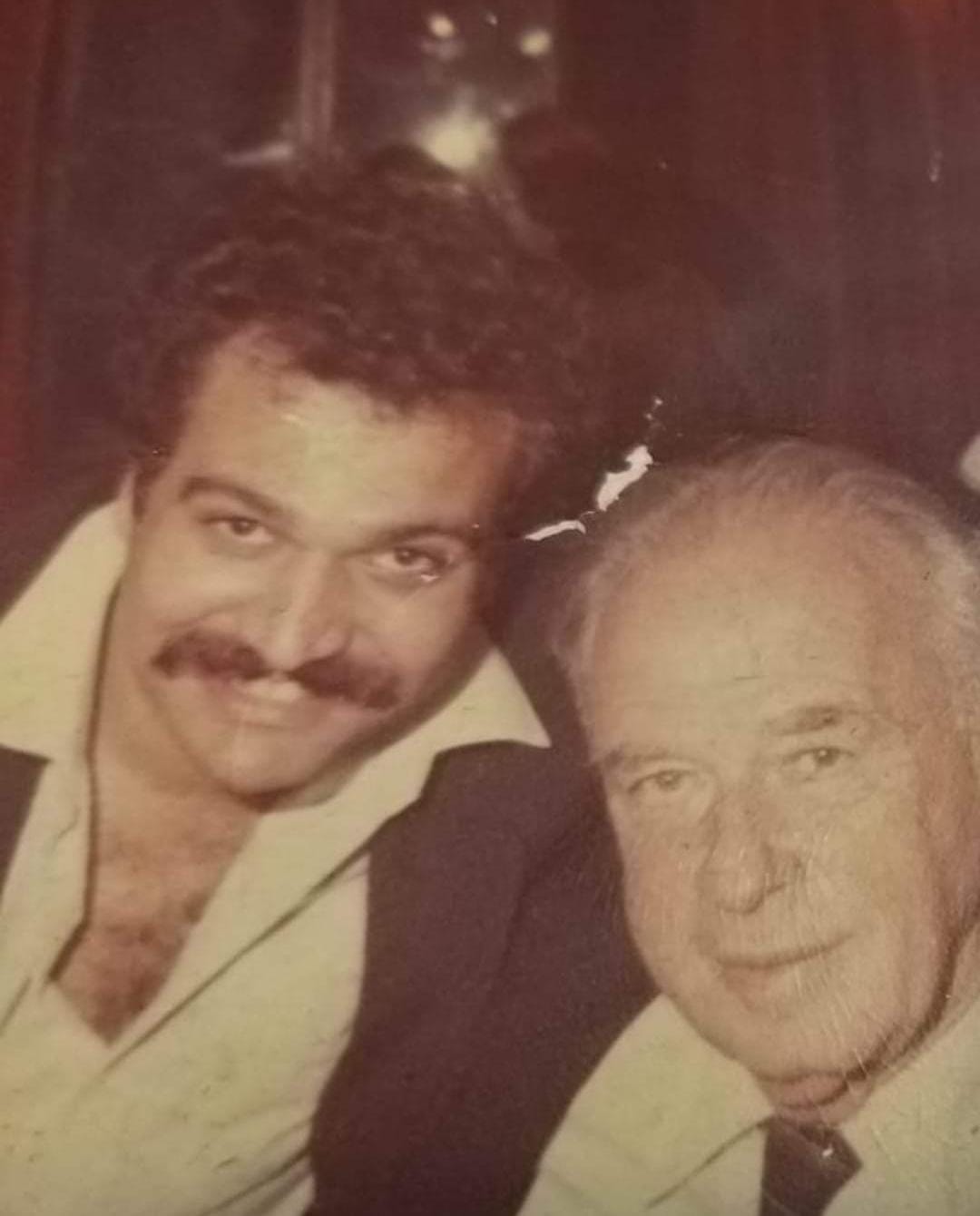A Journey to Freedom: Eli Eliahu's Miraculous Escape
When Eli Eliahu was jailed in Syria, nobody knew if he would return alive. Decades later, from his home in Jerusalem, he recounts his survival story and personal Exodus.
 Inset: Eli Eliahu (background photo: shutterstock)
Inset: Eli Eliahu (background photo: shutterstock)Every year, on the eve of Passover, Eli Eliahu recalls his personal exodus. He remembers and shivers. He remembers and gives thanks for the miracles and the liberation that is anything but a given.
Born in Aleppo, Syria, into a large family of the Jewish community, his childhood memories are warm, pleasant, and traditional. "My siblings and I attended Talmud Torah and Jewish institutions," he shares. "We prayed at the synagogue, and generally, most Jews in Syria preserved tradition and were very united."
Nothing prepared him for the day they would have to sell their belongings quickly and flee a place that would suddenly become an enemy state.
In the Prison of Spy Eli Cohen
"Tension in Syria began right after the declaration of the State of Israel's independence," recalls Eliahu. "During those days, Jews were prohibited from leaving the country, and the Syrian secret police closely monitored them. The Syrians treated us like hostages, allowing us to live our lives in Syria but obstructing any opportunity to go to Israel, feeling that our presence on their land could be a bargaining chip against Israel. When war would break out, they could threaten to harm us. This is why every Jew's ID was marked in red letters with the word 'Moussawi', meaning 'Of the religion of Moses'. It was their way of labeling 'dangerous' people, i.e., Jews."
Nonetheless, many Jews managed to escape Syria and reach Israel, mostly via Lebanon or Turkey, where helpers assisted them in crossing the border. "By age ten, I discovered that my parents were helping to smuggle Jews," Eliahu notes, "a few years later, I too joined the effort, helping around 50 Jews to move to Israel, forming close ties with smugglers, all in cooperation with the Israeli Mossad."
But why didn't you use those connections to make Aliyah yourselves?
"Initially, we felt a great mission to help as many Jews as possible; we couldn't leave everyone behind and just flee. As time went on, we were marked by the secret police, knew we were constantly followed, and preferred to wait for a more suitable time for our own departure due to our intimate knowledge of the smuggling network."
As the years passed, more Jews left Syria, leaving a dwindling population behind, aware of the increasing danger to their lives daily.

Age 24, married with three small children, Eliahu was arrested by the secret police. The dreaded knocks came at the door, and officers commanded, "Dress and come with us." He was soon brought to the police HQ, charged with smuggling, then moved to one of Syria's most notorious prisons.
"They dragged me to the prison cell," he describes, "kicked and rolled me down the stairs, beat me with rubber pipes, and shoved me into a room with other Jews I knew, all long detained for helping with smuggling. Later, they transferred me to the prison that once held the spy Eli Cohen, where I stayed in isolation for four months."
"I Never Stopped Believing"
After four months of isolation, Eliahu was finally allowed a daily "break" of ten minutes, and only after long months in prison did they grant him permission to shower. "The cruelty of the jailers was unimaginable," he painfully recalls, "they would beat and kick me without reason. Even a normal shower was prohibited, and when finally permitted, they'd play with the water taps, switching from boiling to freezing, and eventually just turn it off while laughing."
What kept you going through this ordeal?
"Only faith in Hashem. I believed my imprisonment wasn't a coincidence, but that Hashem had placed me there. If so, He could also change my fate and rescue me in an instant. I was sure a great miracle would occur, and I'd be reunited with my children and family. This faith never left me, and I never despaired. Of course, I prayed a lot and recited Psalms, reading 'A Psalm of David. May Hashem answer you on the day of distress' over a thousand times."
Eliahu has many prison memories, but the boredom and idleness linger strongest. "It was horrible knowing each day brought nothing new, possibly persisting until death. There were also severe tortures that threatened to break me," he recounts.
He also remembers a particular Passover night. "After three and a half unbearable years of torture, they placed six of us Jews in one cell; previously, we were isolated. Computing dates, we realized it was almost Pesach, the Seder night."
How did you manage a Seder night in prison?
"Twice a week we received boiled potatoes, so we began saving them. For Pesach, sitting on the floor, these served as our festive meal. At one point, a companion sighed, 'Oh, instead of dishes, lamb, charoset, and matzah, we eat old, spoiled potatoes'. The elder among us responded, 'My son, grateful are we, for the sake of the Land of Israel and the Jewish people, we'd eat even gravel'. These words resonate with me to this day, reflecting the Jewish spirit."
The Most Emotional Seder in the World
The great miracle Eliahu awaited over four years finally arrived with the announcement of his release, allowing him to return to his home and family. But amidst the joy and relief, he was acutely aware of the need to swiftly leave Syria, as living there posed a life-threatening risk. It was also clear that his entire family would have to join the escape, for staying even a day after his departure would mean certain persecution and denial of the chance to ever leave.

"It was the days before Pesach," he recalls, "and gearing up for escape, we gave away all our home furnishings. We informed neighbors we were redecorating, offering our old furniture to anyone interested. We distributed everything, leaving us in an empty apartment, certain of leaving before Passover. Then, just days before the holiday, the smuggler announced the full moon, making it unsafe to escape in such illumination, postponing for another two weeks. Disappointment settled in our empty home as we wondered, 'How will we celebrate the Seder?'"
How did you celebrate it?
"It was the most emotional Seder ever. We sat on the floor without chairs and table but felt true freedom. When we recited 'Next year in the Land of Israel', our hearts brimmed with joy at the thought of the upcoming year in freedom."
Crossing the Border
The Eliahu family left Syria immediately after Pesach. "We were a group of 31, from the extended family, including 17 children under ten," details Eliahu, "We walked for two days, explaining to anyone curious that we were just hiking. This facade helped us move unnoticed."
But there was a terrifying moment he cannot forget, when his baby began crying, and the smuggler whispered, "Quickly, cover his mouth so he isn't heard." "Words can't capture the feeling as I held the child's mouth tight, trembling with fear," Eliahu describes, "The child's voice fell silent, and I couldn't know if he was alive. I found myself pleading with Hashem: 'Master of the Universe, after all we've endured, don't test me with the judgment of Solomon.' But the smuggler hushed me urgently: 'Either all 31 of us perish here, or the baby, you must choose.' Silence engulfed us, too fearful even to check if the baby lived. We pressed on in absolute darkness through dangers: rushing streams, sucking swamps, minefields, rocks, thorny bushes, barbed wire. We bled, stumbled, rose, dignified and resilient; at one point, we heard Syrian soldiers approaching, convinced capture and execution awaited us. Miraculously, we lay flat unnoticed, undoubtedly witnessing great miracles."
They continued through a minefield, creeping in fearful procession, overcoming numerous hazards over long, harrowing hours until reaching the barbed wire at the Turkish border. "Suddenly, the baby opened his eyes, my heart resumed beating," Eliahu recalls, "I felt it a divine signal – a sign of life."
In Turkey, they huddled in a safe house for weeks, eventually convincing a judge of their need for political asylum and suggesting Israel as refuge. "That's how we reached Israel," he concludes, "And since then, I've lived here, blessed in Jerusalem, and each year during the Haggadah's recitation, I thank Hashem for my personal exodus and the daily kindnesses He bestows upon us all."

